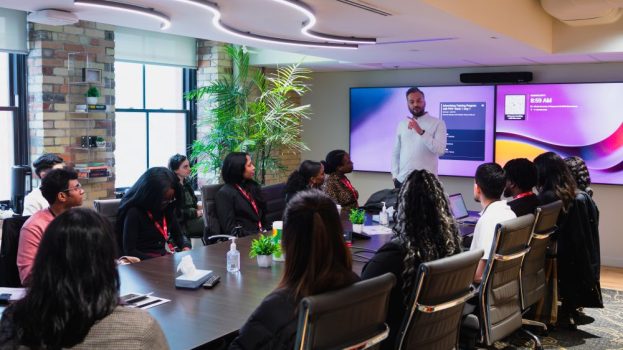POCAM is polling BIPOC professionals in advertising and marketing about their experiences, perspectives and issues within the industry for the second consecutive year with the return of its “Visible & Vocal” study.
The second iteration of the study is open for responses until Dec. 17. The study invites BIPOC Canadian marketers and advertisers to participate in a 10-minute survey that asks them about their experiences with issues related to discrimination, including microaggressions and lack of oppportunities.
Many of the questions this year mirror those from last year’s survey, allowing POCAM to establish benchmarks of progress within an industry that has vowed to change, including via the organization’s own Call for Equity initiative, which drew the signatures of more than 100 creative agencies, companies and brands in 2020.
“As with many studies, it’s important to see where the progression – or potentially regression – may or may not have happened when we go back into the field,” explains Julian Franklin, principal of Franklin Management Group and member of POCAM’s steering committee (pictured above). “Have things changed? Have there been improvements? It was important to keep things consistent with last year to see what the trend line could be over two, three or five years.”
But the survey also asks new questions of participants, including whether they’ve experienced or seen change firsthand over the past year. These include queries about DEI initiatives that have been introduced at participants’ workplaces, as well as whether or not the executive team has changed to become more representative.
In addition, “we ask questions about how individuals are doing,” says Franklin. “Has there been a change in their focus? Are they more engaged than ever, or are they fatigued? I think we wanted to make sure we captured some of those elements and ask those questions to be able to share that data as well.”
As with last year, the goal of the survey is both to give BIPOC professionals a clear voice within the industry while also giving allies a clear perspective of the issues impacting those professionals to aid in the planning and execution of DEI initiatives.
“Hearing this from BIPOC voices is important. This is data that can support those initiatives,” says Franklin.
























